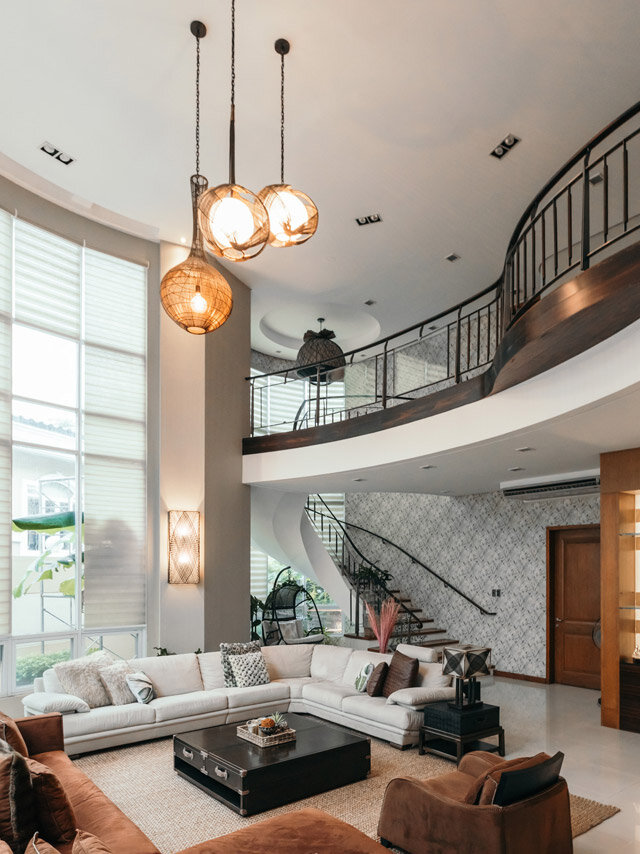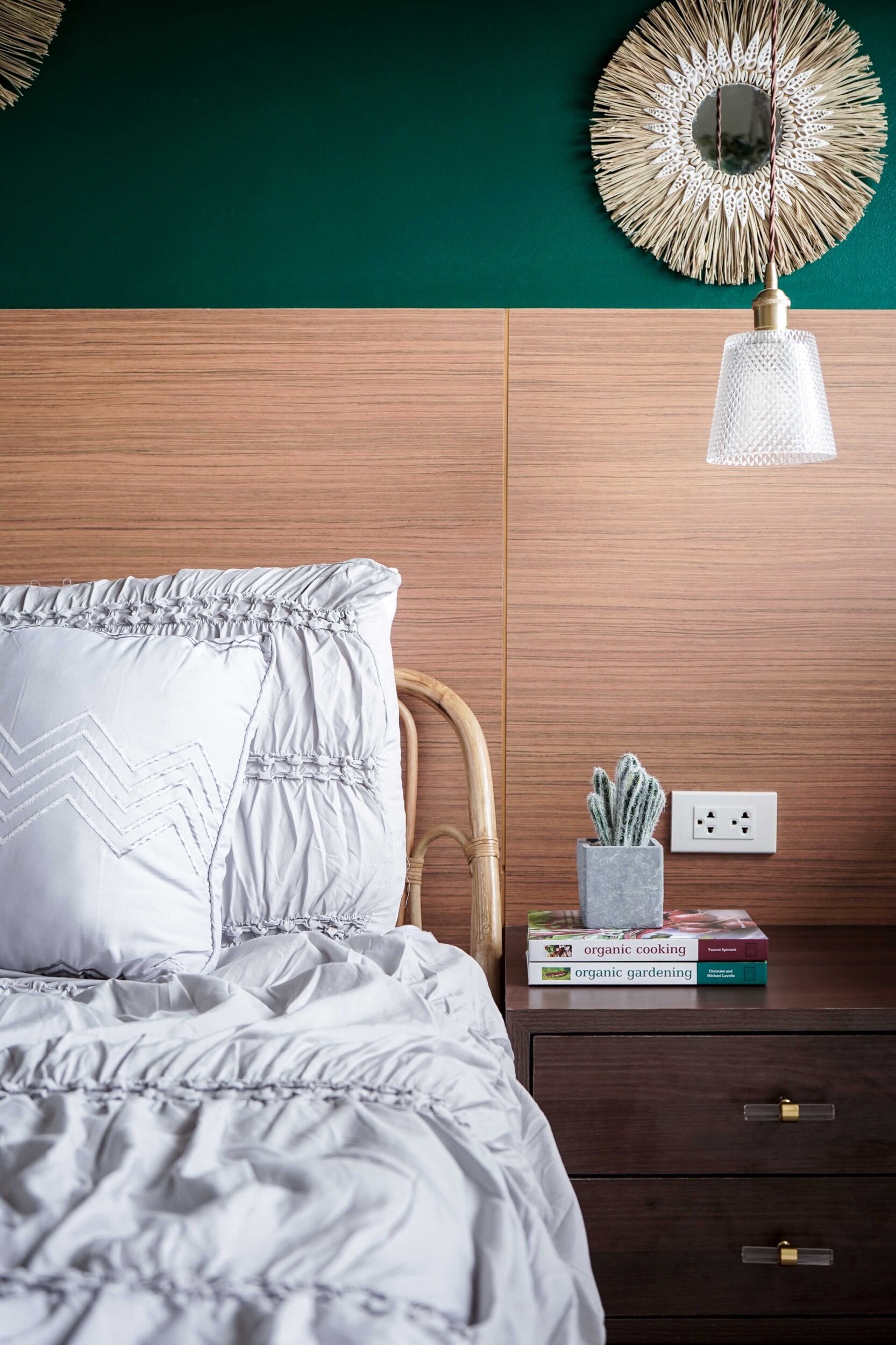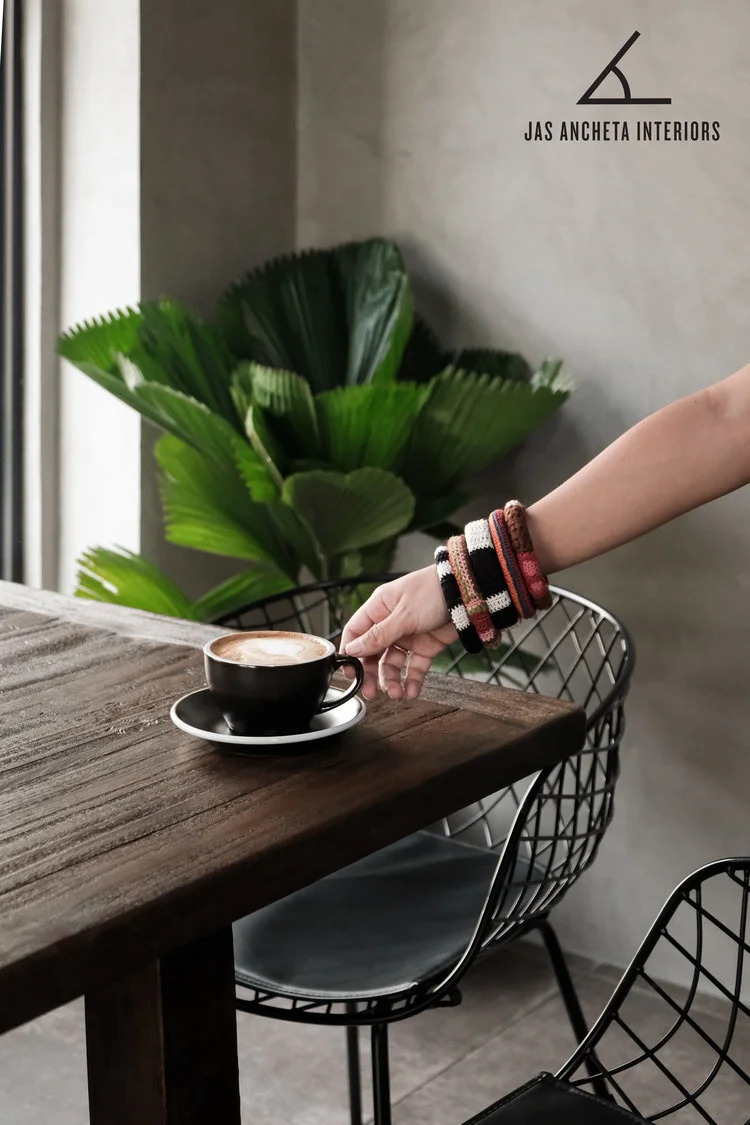Gallery walls infuse your home with character and visual interest. Not to mention, art provides a great conversation point. If you are already collecting art, there’s a good chance you have already displayed these in a gallery wall in your home. However, there may be other oft-overlooked areas that you can further spruce up with art. On the other hand, if you’re getting started with curating your own art collection, now is a great time to begin mounting your pieces.
In this article, we give you easy tips for adding a gallery wall to your home’s interiors.
Use a unifying color palette or theme
If you don’t know where to start, consider employing a unifying theme to ground a vignette. In an article forThe New York Times, Lindsay Griffth, a prints and multiples specialist at iconic auction house, Christie’s advises: “You should look for ways to tie disparate pieces together, like through color or framing.”
For example, if you have a large painting that features warm oranges and yellow ochers, use this as acentral piece to anchor the gallery. From here, you can surround it with other artworks that echo the same palette. You may even add complementarypieces. For example, an azure painting will complement the orange and yellow. On the other hand, don’t overlook neutrals. When grouped together, a classic grouping of black and white photosare particularly stunning.
Choosing a unifying theme can also help ground a gallery wall. If you have a collection of bird paintings, combine these with other fauna-themed art. If you collect framed band posters, these can work togetherwith photos of the artist to communicate a cohesive story. You could even add colored prints that visually complement the posters.
Lastly, you may even use the frame as a unifying element. For example, you may combine pieces that feature the same type of frame and mat color.
Explore different ways to add a gallery wall
You can get as creative as you want when incorporating a gallery wall into your home’s interior design. You could go for symmetry with a series of same-sized artworks arranged in a grid, or a triptych of artworks that have been laid out linearly. A stairwell gallery featuring different sized pieces that follow the slope of the stairs is another popular way to display art.
If you want more flexibility, you can explore a shelf wall. Shelf walls give you an opportunity to change the artworks on display. Adding a shelf wall in children’s playrooms or home offices may also function as a mood board to fuel creativity in these spaces.
On the other hand, you ca mix things up using artwork with different sizes and frames. Also known as the Salon Style Wall, this type of gallery wall has its roots in the French Royal Academy during the 17th century, a time when salons were common locations for displaying art. Due to the sheer number of works produced by the Academy’s students, this resulted to “crowded” galleries.
This will of course require extra attention to detail and visual editing. Before you commit, trace your pieces on paper then tape these to your wall. Moreover, placing them on your floor beforehand allows you to edit, rearrange, add and subtract pieces as you see fit.
Need more inspiration? Check out these pinterestboards.
Incorporate other media
You need not feel obligated to use framed art exclusively. Gallery walls can become even more interesting when the addition of other tridimensional pieces. As with the previous tips, however, these need to be thoughtfully incorporated into the vignette.
Here are a few examples:
• For a nature-themed gallery situated above a console table, you can place potted plants, small sculptures, or books on the table to complement the art.
• A photo wall featuring your child’s photos and their framed drawings can be combined with a framed newborn outfit, playful decor such as a colorful dream catcher, or event giant wooden letters that spell out a name.
• Add a mirror to a gallery wall next to your entryway or even one inside a small space such as a guest bathroom.
• Framed prints and even pieces of fabric infuse texture, color, and pattern.
• Include ceramic plates to a grouping of art in the dining room or kitchen.
If you need help with drilling and mounting artwork, you are of course free to work with a professional. A pro can help ensure that artworks are level and spaces in between are properly measured out.
At the end of the day, your art collection and the vignettes you choose to display them in tell a unique story such as a personal narrative, stories about a specific place or time, or even a history lesson.
It is as much a personal expression as an expression of the stories that these pieces tell when they come together as a whole.
Need professional help with your home? Inquire with us at www.jasanchetainteriors.com


























